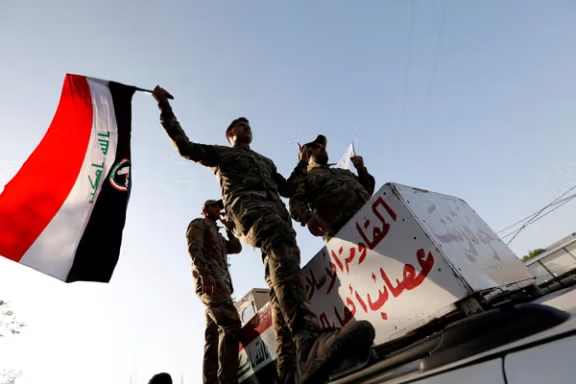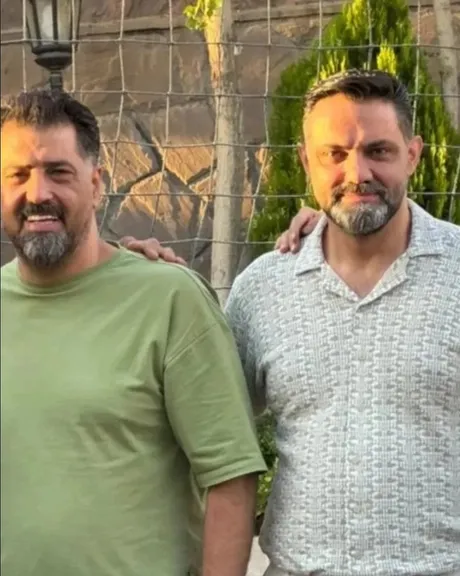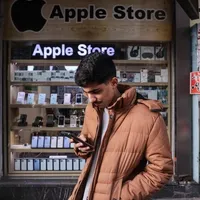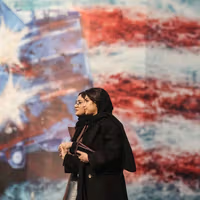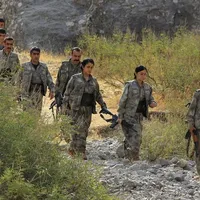Former President Hassan Rouhani is being targeted by hardline lawmakers, Revolutionary Guards commanders, and state-aligned media outlets. Even figures close to Supreme Leader Ali Khamenei appear to have joined the quiet campaign to sideline him.
Although social media sentiment leans in Rouhani’s favor, visible public support is absent. The only voices defending him belong to former aides, not the broader population.
Much of the hostility stems from Rouhani’s recent remarks implicitly criticizing Tehran’s foreign policy—particularly the so-called “Look East” doctrine—and his renewed public presence since the 12-day war, which has coincided with Khamenei’s retreat from the spotlight.
Many in Tehran believe Rouhani is positioning himself for a potential role in the power vacuum that could follow the soon-to-be 87-year-old leader.
History with the Guards
In the past week, former IRGC commander Mohammad Ali Jafari, ex-security chief Ali Shamkhani, and parliament speaker Mohammad Bagher Ghalibaf—himself a former Guards general—have all publicly attacked Rouhani.
His uneasy relationship with the Revolutionary Guards dates back to his presidency.
In December 2014, he described the IRGC as “a government with guns, media outlets, prisons, its own intelligence agency, and substantial economic resources,” warning that such concentrated power could breed corruption.
The backlash was swift. Rouhani’s brother was accused of financial misconduct, tried, and imprisoned—though often seen outside prison—damaging the president’s credibility.
Old rivalries reignited
Rouhani defeated conservative and hardline candidates in both the 2013 and 2017 presidential elections with sharp rhetoric, and his opponents never forgave him.
Ghalibaf was among the contenders on both occasions.
First, he was humiliated during televised debates when Rouhani accused him of taking campaign funds from drug traffickers and backing the violent suppression of student protests in 1999. Then, in 2017, Ghalibaf was pressured by hardliners to withdraw from the race to boost Ebrahim Raisi’s chances—a strategy that failed.
That old hostility is now resurfacing in parliament, where Ghalibaf has taken the lead in attacks on Rouhani. He has been more measured in tone, but ultraconservatives appear to have taken the cue.
On October 26, hardline MPs Amir Hossein Sabeti and Hamid Rasai called for Rouhani’s trial and imprisonment.
While such demands aren’t new, Sabeti went further, claiming Rouhani is positioning himself for a “higher role”—a thinly veiled reference to his rumored ambition to become Iran’s next Supreme Leader.
A potential contender?
Rouhani remains a singular figure among Iran’s clerics: he holds genuine academic credentials, speaks with eloquence, and has a revolutionary pedigree.
Few clerics can match his combination of seniority and stature.
It’s not hard to see why Khamenei and his son Mojtaba—whose name is heard more than any other in succession chatter—would like Rouhani weakened.
There’s no evidence that the leader’s office is involved in what appears to be a concerted attack on Rouhani, but Khamenei once publicly rebuked him after the former president called for a referendum to restore presidential powers.
Fall from grace
Rouhani’s main liability is his loss of public trust.
He misled the nation about the IRGC’s missile strike on a civilian airliner in 2020 and authorized the violent suppression of peaceful protests in 2019.
Stylistically, he models himself after Ayatollah Mohammad Beheshti, the former chief justice killed in a 1981 bombing.
Always impeccably dressed, with a neatly groomed salt-and-pepper beard, he projects discipline and control—and is perhaps the only senior figure in the moderate camp who can claim a serious security record.
As pressure mounts, many in Tehran wonder whether this campaign against Rouhani will end well—for him or for the system.
His situation recalls the parable of a man falling from a high-rise building. When asked how things were going halfway down, he replied, “So far, so good.”









